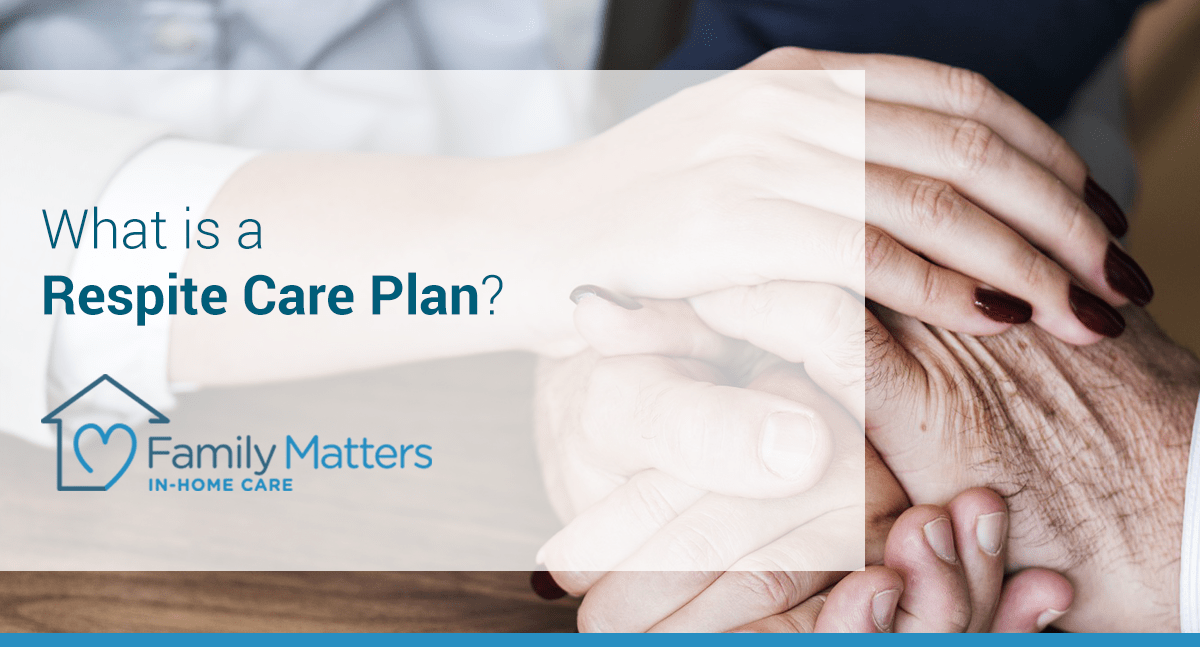
What is a Respite Care Plan?
While caring for an aging loved one can be a rewarding experience, it’s often also physically exhausting and emotionally draining. According to AARP, almost 40% of family caregivers report their jobs as emotionally stressful. It is important that caregivers take time to care for themselves in order to avoid caregiver burnout, depression and health problems.
If you are caring for an aging loved one, taking a break from your role as primary caregiver will help you feel refreshed and enable you to continue providing best care possible. Of course, you may be concerned about someone else’s ability to properly care for your loved one in your absence, so it’s important to plan ahead to make sure things go smoothly while you’re away. A respite care plan allows you the opportunity to truly relax and focus on your own self care, knowing that your loved one is being well cared for. Here are some tips for creating a respite care plan.
Evaluate Needs
The first thing to consider when planning for respite care is what your needs are as a caregiver. Are you simply in need of a few hours off during the week to run personal errands? Do you need a full 24 hours away each week to relax and recharge? Or, is a two-week vacation every few months is what you have in mind? Every caregiving situation is different so it’s up to you to determine how much of a break you need.
Next, assess what your loved one needs in terms of the care you regularly provide for them. Do they need companionship? Someone to transport them to appointments or to the grocery store? Help with showering and getting dressed? It may be helpful to take notes that include all of their needs, even if they seem small.
Prepare a Care Plan
Organize a binder or folder containing documents and instructions that will prepare a new caregiver to provide the best care possible for your loved one. Whether the respite caregiver is a family member, a friend, or a professional care aide, a clear and organized care plan will help them feel knowledgeable and confident in the care they provide.
Here is some important information to include in the care plan:
Medical Information
- Make a list of all medications and write out clear dosage instructions including the amount of medication needed and the time of day that it is taken.
- Make a list that includes the names and contact information for your loved one’s doctors.
- Write out a brief medical summary to help a new caregiver understand your loved one’s needs, and also provide a more comprehensive medical record that can be referred to in case of an emergency.
Daily Routines
- Write out a schedule that includes your loved one’s typical routine. What time do they go to bed and wake up? When do they usually eat their meals? Do they like to get out of the house for a walk or to run errands, and if so what time of the day is best?
- Make a list of your loved one’s likes and dislikes. What types of food and drinks do they like? What kind of music or television shows do they enjoy? What other activities do they like to do throughout the day?
- Write out instructions any daily activities they need assistance with such as getting out of bed, showering, or using the restroom.
Emergency Contacts
- Make a list of emergency contacts including names, phone numbers, addresses and relation to your loved one.
- Include location and contact information for the closest hospitals and emergency rooms.
Remember, as a primary caregiver for an aging loved one, you deserve a break. It’s absolutely essential that you care for your own well being in order to provide compassionate, quality care for your loved one on a long-term basis.
If you or your family member is considering in-home care as part of a plan to age in place, contact Family Matters In-Home Care today for a free consultation. Our team is dedicated to supporting your family and helping older adults enjoy life in the comfort of their own home for as long as possible.
Some of the services offered by Family Matter In-Home Care include: Alzheimer’s & Dementia Care, Bed & Wheelchair Transfer Assistance, Companionship, Housekeeping & Meal Preparation, Personal Care, Recovery Care, and Transportation.
